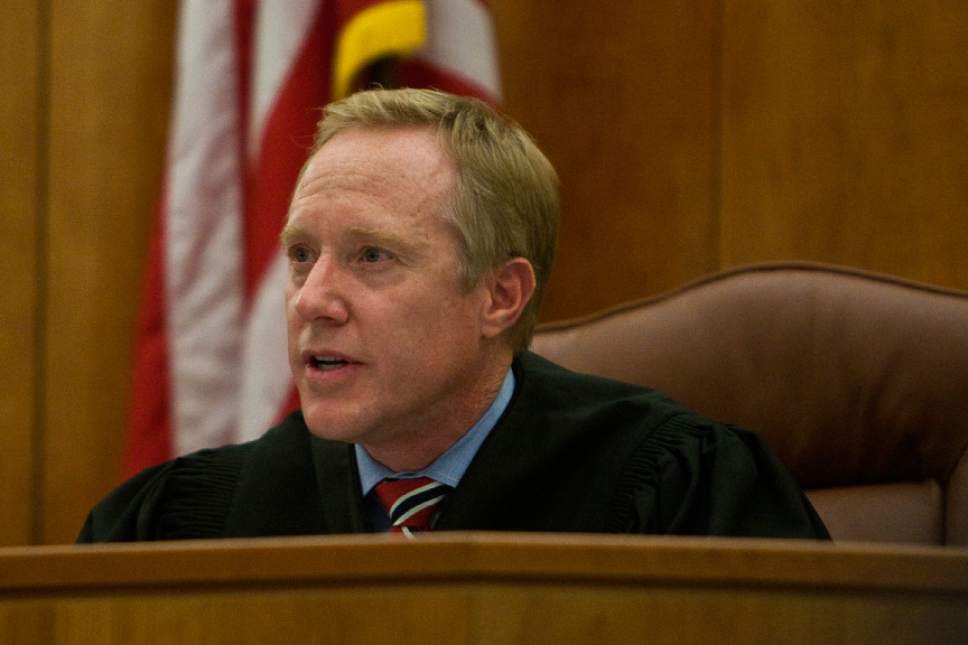This is an archived article that was published on sltrib.com in 2017, and information in the article may be outdated. It is provided only for personal research purposes and may not be reprinted.
Criticism continues to swell against 4th District Judge Thomas Low, who complimented a convicted rapist last week, stating Keith Robert Vallejo was an "extraordinary, good man," and that "great men sometimes do bad things." The judge choked up while sentencing Vallejo for 11 counts of sexual abuse.
One of the victims was sitting in the courtroom, violated once again.
This is the same case where the judge failed to order Vallejo into custody after conviction. He reversed himself more than a month later.
So how are judges supervised? The Judicial Conduct Commission acts as a prosecutor for judicial misconduct by investigating claims of impropriety and recommending discipline to the Utah Supreme Court.
Further, Utah judges are subject to regular retention elections every six years (10 for Supreme Court justices). The Judicial Performance Evaluation Commission acts as a public information officer by evaluating conduct and recommending, or not recommending, retention. Ultimately, though, the voters decide.
Only two district court judges have lost retention elections in Utah: David Young and Leslie Lewis. Young lost after a public reprimand magnified a previous election he only won by 2 percent, after a group attempted to oust him for a lenient sentence in a sexual abuse case. For Lewis, the question remains whether she would have lost her retention election if her anti-hunting, You-Tube-publicized courtroom tirade hadn't been mere weeks before the election.
Public outcry sometimes works, as in the more recent case of a judge from Carbon County who conveniently retired after he ordered a lesbian couple to give up their infant foster daughter.
In other words, judicial discipline is often a long process, and judges most often win retention elections. And maybe the system is designed that way precisely to ensure that a judge isn't judged on one case only.
Back to Judge Low. In 2014, JPEC recommended 12-0 to retain Judge Low. That means he isn't up for retention until 2020.
The Code of Judicial Conduct Rule 1.2 requires that judges "should act at all times in a manner that promotes ... public confidence in the independence, integrity, and impartiality of the judiciary."
Judges who give lenient sentences or empathize with sex offenders do not promote confidence in the integrity or impartiality of the judiciary.
Perhaps Low was emotional last week not in empathy with the criminal but from the weight these sorts of crimes bear. Or maybe he thought Vallejo was a good man in some sort of esoteric we-are-all-good-people-who-sin sort of way.
But these crimes are not what good men do. Full stop.



